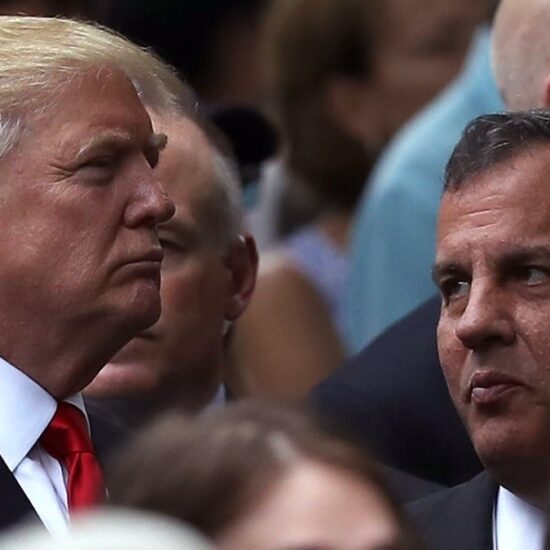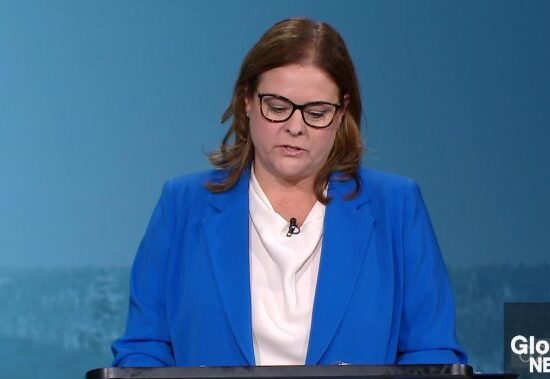
Disputes over Antonio Campos’ HBO Max adaptation of “The Staircase” have some in the documentary community questioning whether they would readily allow a narrative director to turn their facts into fiction.
“The Staircase” revolves around the death of Kathleen Peterson and the murder trial of her husband Michael, as the filmmakers chronicling the case for a docuseries of the same name become central characters in the storytelling. Kathleen Peterson was found dead at the bottom of the staircase of their North Carolina home in 2001, and Michael was convicted of murder in 2003 before accepting an Alford plea for manslaughter charges in 2017, which freed him for good. The HBO Max series, which concluded this week, stars Colin Firth as Michael and Toni Collette as Kathleen; documentary filmmaker Jean-Xavier de Lestrade is portrayed by Vincent Vermignon and editor Sophie Brunet by Juliette Binoche.
Shortly after the May 5 premiere of the HBO Max miniseries, in a Vanity Fair story, de Lestrade and Brunet both went public with their unhappiness with the miniseries, which depicts each acting in ethically questionable ways. Michael Peterson has since expressed his own unhappiness about the role de Lestrade had as a co-executive producer in the miniseries, telling Variety that the filmmaker “pimped out” his family for financial gain.
Campos did not respond to a request for comment for this story, and HBO Max declined to comment.
In a series of emails sent to Variety, published this week, Peterson took issue with the way HBO Max’s “The Staircase” depicted him and his family, accusing the series of “egregious fabrications and distortions of the truth.” While de Lestrade maintains that he was paid just €7,500 ($9370) for the materials he sold to Campos, Peterson asserts that the director should have been wary of the deal and concerned for the Peterson family.
“He was compensated — paid off,” Peterson said of de Lestrade. “But we didn’t sell our story to Campos.”
Documentary filmmakers have been closely watching the debate about the adaptation since the show’s debut early last month. For Dawn Porter, director of “John Lewis: Good Trouble” and “The Way I See It,” the risks of such adaptations are clear.
“Probably many more people are going to see the fictionalized account than will see the docuseries, even as popular as it was,” says Porter. “The risk of allowing someone else to fictionalize your story is that you can’t reclaim that narrative even if it’s so clear that the fiction is false. So while it’s probably flattering to have somebody say, ‘I want to fictionalize your film,’ the key word is fiction.”
She says agreeing to the project was a risk for de Lestrade, and the show “ultimately is really unfortunate for the documentary community.
“Part of the popularity of documentaries is that it’s the truth,” she continues. “So, anything that calls into question that it’s true, or as true as you can make it because there is no absolute truth, is a problem.”
De Lestrade, who sold Campos the rights to the story and gave him access to archives over a decade ago, tells Variety he was fine with being a character in the adaptation, and that he “trusted” Campos to the point that he did not ask to look at scripts or see cuts of the series. It’s a decision he now regrets — mainly because in Campos’ dramatization of the story, de Lestrade is depicted as a docu helmer who asks for multiple takes and more emotion. Brunet, meanwhile, is portrayed as someone who edited the docuseries to benefit Peterson because she’s in love with him.
De Lestrade denies ever directing subjects, saying that it’s “against all my beliefs as a filmmaker.” And Brunet says that Campos’ “was very unfair to me” in his characterization of her in “The Staircase.” “Throughout the whole series, despite Juliette Binoche’s wonderful acting, I look rather crazy, manipulative, stupid and pathetic,” she said via email.
Brunet states that although she did have a romantic relationship with Peterson, it began after she completed the docuseries’ first eight episodes. “I started writing to Michael in November 2004, one month after he was taken to prison at a time when I was not working on the series anymore,” Brunet wrote in an earlier email to Variety.
The miniseries also implies that Brunet edited Peterson’s trial courtroom scenes and the testimony of Deborah Radisch, former chief medical examiner for the state of North Carolina. Brunet refutes that, stating that she edited “mostly everything that didn’t take place in the courtroom” in the first eight episodes.
Complicating matters: Updates to the original docuseries aired over a 14-year period, some of which Brunet edited while she was involved with Peterson. She edited three of those final episodes while she was involved with Peterson, and completed the final two after they had broken up.
The dispute over the HBO Max series went public shortly after its debut. In the Vanity Fair story last month, key players in the original docuseries – including de Lestrade, Brunet, producers Allyson Luchak and Matthieu Belghiti, editor Scott Stevenson and defense attorney David Rudolf — accused Campos, as well as co-showrunner Maggie Cohn, of taking their narrative license too far. They asked HBO Max to place a title card stating the drama was “inspired” by their docuseries at the beginning of each episode of the eight-part series. Each episode already contains a disclaimer that it is “a dramatization based on certain facts.”
Veteran docu director and editor Sam Pollard (“MLK/FBI”) feels that audiences should know that docus are already coming from a filmmaker’s point of view.
“This notion of documentary truth is a false one,” says Pollard. “It never really made sense, because you always manipulate the material. Always. The question is how far do you go?”
While documentary filmmakers have never been a part of the fourth estate, many documentarians, like Porter and Pollard, set out to expose a truth using journalistic tactics.
Producer-director Marc Smerling (“The Jinx”), for example, is adamant that while he would never ask a subject to be more emotional and do another take, as depicted in “The Staircase,” he believes that Campos simply did his job.
“He seems to be mining this idea that storytelling in itself crosses different truths and realities, and it’s really hard at some point to understand what the truth and what the fiction is,” says Smerling. “He had a story that he wanted to tell, and he’s trying to tell it in a very clear way to an audience. He’s amplifying certain parts of the story and he’s compressing time. We all do that.”
But by compressing time, Campos implies that Brunet was in love with Peterson while she was editing the first part of the docuseries, and that she edited the docuseries to assist Peterson’s appeal, which calls into question the ethics of the production.
“The first letter she wrote came after she left the project,” says de Lestrade. “She didn’t want to put me in the situation where I would ask her to leave the project because she was writing to him.”
In the HBO Max series, Brunet is in the courtroom when Peterson took the Alford plea to manslaughter charges in 2017, maintaining his innocence while doing so. Brunet’s character asks Kathleen Peterson’s daughter Caitlin (Olivia DeJonge) to give permission to exhume her mother’s body, and she examines evidence at a police station. Brunet says that none of that happened.
“I never had any meeting with Michael and his children in prison,” she says. “I did not write a single line of the letters read in the series, nor did I have any of the conversations that take place in prison. I never had any of the conversations with Jean-Xavier or [“The Staircase” producer] Denis Poncet that are in Antonio Campos’ series.”
But some documentary filmmakers point to Brunet’s decision to edit the last five episodes of the docuseries during and after her relationship with Peterson as problematic.
“To me, it’s overstepping the boundaries,” Pollard says. “That shouldn’t have happened.”
Smerling points out that de Lestrade and his team “are asking for a disclaimer to be put on the front of the drama series, which I agree with, but there’s no disclaimer on those episodes of ‘The Staircase’ that were edited by [Brunet] when she was in a relationship with Peterson. So, it’s a murky area.”
But Brunet is adamant that her romantic relationship with Peterson did not influence her work as an editor on the latter half of the project, and that she would have bowed out if it had.
“Jean-Xavier is an immensely talented director,” she says. “He would have noticed if anything was wrong in my work and he would never had allowed it. Trying to get as close as possible to the truth is what gives real value to what we are doing, and I believe it applies to both of us. It is precisely what makes Campos’ series so shocking to us: he didn’t capture that, but to the contrary he pictured us manipulating reality in a way that is the complete opposite of our practice.”
De Lestrade says that he understands the documentary community’s reaction to Brunet’s involvement at that point, acknowledging that if he were outside the story, he might have “said exactly the same thing, because it’s tricky.
“But again, being a filmmaker and being a storyteller, it’s a lot about relationships, about feelings, and I know Sophie, and I know how she works and how she worked,” he says.
Despite the reservations others might have about her continued involvement, de Lestrade says “if I could do it again, I will do it again.” He tells Variety: “When I look back at the last five episodes of the series, I feel very comfortable the way we cut the pieces. There is no bias there. And again, an editor is never alone in the editor room. At the end of day, the director will decide what to cut and the way to cut it.”
Peterson’s daughter Margaret Ratliff, who is portrayed by Sophie Turner in the HBO Max series, has known both de Lestrade and Brunet for close two decades, and currently works as a documentary filmmaker.
“Sophie is a professional,” Ratliff says. “I can’t imagine that if Sophie did push some sort of agenda, which I don’t think she did, Jean-Xavier would allow it. So as a documentary filmmaker myself it’s complicated, but I do have an insider look at my dad and Sophie’s relationship, as well as Sophie as an editor.”
After watching HBO Max’s “The Staircase,” Pollard would have a few rules if anyone approached him about making one of his docus a work of fiction.
“My stipulation would be that I wouldn’t want to be part of the dramatization.”
Pollard, Porter and Smerling all agree that before allowing someone to fictionalize their work, they would have to get the approval of their respective doc subjects.
“There’s the opportunity for a lot of damage, and a lot of the people that filmmakers are interested in already have difficult lives,” Porter says. “It’s my film, but it’s their story.”
Ratliff says she became aware of the project when she met Campos during a 2011 court hearing that resulted in her father’s release from prison.
“We spoke, and he told me that he was interested in making a film about the relationship between my dad and the filmmakers, and really what the filmmakers go through,” Ratliff remembers. “I always had an interest in it, because as a documentary filmmaker, it is interesting to examine the relationships between the subjects and the documentary filmmakers and how everything unfolded.
“But I did not agree to, and I did not know that it would be a broad fictionalization of my family,” she continues. “I also didn’t know how sensational the show would be. I didn’t know how violent it would be. And I didn’t know that they would misrepresent the filmmakers.”













